It was an uphill task to get a designer on board when the Laapataa Ladies actress was travelling to Cannes for the screening of the Payal Kapadia film, All We Imagine as Light. She would tirelessly approach designers in the hope of getting an outfit made for an affordable price. But it was not to be as their charges were close to a lakh rupees, to start with. Chhaya had to work around a strict budget considering the kind of life she lived. “I grew up in a housing board colony in Kalina, a nondescript suburb in central Mumbai. People would generally laugh at my language skills; it wasn’t great and no one took me seriously. I didn’t go to an English school, so I obviously lack that sophistication,” smiles Chhaya.
Designers have a lot of attitude, she says. But it all changed when she met stylist Neha Chaudhari, who suggested a wardrobe be created for Chhaya. “Raw Mango and Suta came forward to help me saying, ‘wear our clothes’. Even if I have the money, I will not wear designer clothes. I am the type who will open the closet, and wear the first thing that catches my eye,” says Chhaya.
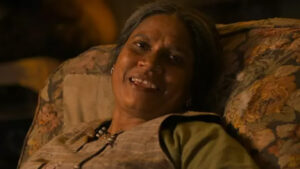
For Chhaya, fashion is about comfort. She also wanted to experiment with her looks. “I was representing India not Maharashtra, so the wardrobe had to reflect that,” she says. She grumbles about the pressure on her to dress ornately when she attends events, but what she is sad about is her dad, a mill worker, never got to see her success.
There is something real about Chhaya that makes her what she is. It is definitely the struggle that shaped her mindset. She grew up like a boy. She loved playing outdoor games like kabbadi. There was a constant pressure from her mom to see her settle down, which translates to getting her married. “Kabbadi is a boy’s game, my mom would say, but I never stopped playing,” she chuckles, adding her brothers and sisters never thought much of her acting as a career until now; they were in fact “ashamed”. “I wanted to be happy as I had faced enough – I lost both my brother and father, and was broken from within.”
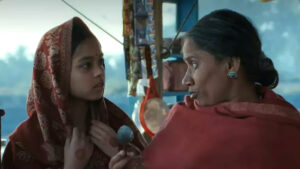
An ad in the newspaper for a film workshop changed the course of her life. She knew she wouldn’t allow anyone to change or alter her life’s path. Luckily, Payal Kapadia had seen her film Fandry. “Payal watches progressive films. And, I had never done any commercial cinema. Some of my films have not even been released. The subjects I chose were unique. Sachin Purnaik called me for an audition. I prefer talking, not auditioning. That’s how I was signed for the Grand Prix winning film,” she says. She knew in her heart after shooting for Payal’s film that there was something special both about the director, and the script.
Cannes was a revelation. It took her by surprise how everyone was discussing what gown Aishwarya Rai was wearing, not so much the movies. “After 30 years, an Indian film has won such a great honour. That we broke the myth of just style, is something. Cannes was finally about movies,” she says.
She hopes the new crop of young filmmakers will be motivated to see big films, with multi-billion dollar budget but understand that beautiful actors alone cannot make the movie win; what matters is a good story.
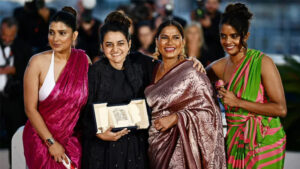
“Cannes has a protocol. We all had to follow it. I only wanted to take saris, but couldn’t. It was exhausting with the hairdo and makeup. What I learnt was that though our film was low budget, the happiness it gave me working in it cannot be measured by the bank balance. People with money will not understand this,” she says.
Giving interviews all day and starring in photoshoots, Chhaya has been in a tizzy. But she says she is enjoying every moment. “I like home food. In Cannes, I hardly ate breakfast. I lived on juice and fruits, maybe a sandwich once in a while. I am a dal, bhat kind of woman,” she says, adding there was no time to rest or watch any films.
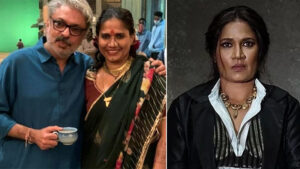
She breaks the misconception that Marathi actors are not treated well in Hindi cinema. Chhaya has an alternate point of view: “Every actor has the right to say ‘no’ and walk off.” She confesses, she loved working with Sanjay Leela Bhansali to Rohit Shetty, and even Alia Bhatt, Tabu to Ayushman and his brother – they all work hard and are down-to-earth. “There is this talk of nepotism, but in Bollywood only talent survives,” she says.
Meeting Kiran Rao and Aamir Khan, while doing Laapataa Ladies, made her believe, “some people look good only on screen, but some are kind both on and off screen.” The team, she remembers, was like a family, and no one behaved as per the social status they held. “About Kiran, I was surprised to see her attention to detail. She isn’t from the lower middle-class world, yet knew minute details and her insights were brilliant,” says Chhaya.
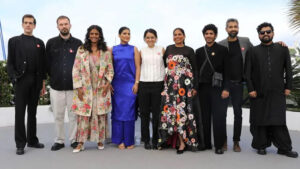
Chayya has also had plain bad luck in movies. Her film Nude was to open the IFFI, but it ran into trouble. In fact, she met director Ravi Jadhav, who threw a small “welcome back” party for her. They wondered why Nude and her powerful role, Chandrakka, didn’t make it to Cannes. “We actors live character to character, we are kalakars. What we cannot say in real life, we communicate through films,” she smiles. Nude is the narrative of two women, who pose for art students to make a living. It addressed issues like what these girls’ lives were about, and why shame was associated with nudity. The film was selected as the opening title of the Indian Panorama section at the festival, but the Information and Broadcasting Ministry dropped it owing to the sensitive subject.
After All We Imagine as Light, Chhaya hasn’t signed any movies yet, but has a bunch of offers lined up. Payal has changed her destiny, she says. “I knew we would win, so I had planned a two-day extension of my trip earlier on,” she adds. – Asmita Aggarwal is fashion & lifestyle editor of nrifocus.com

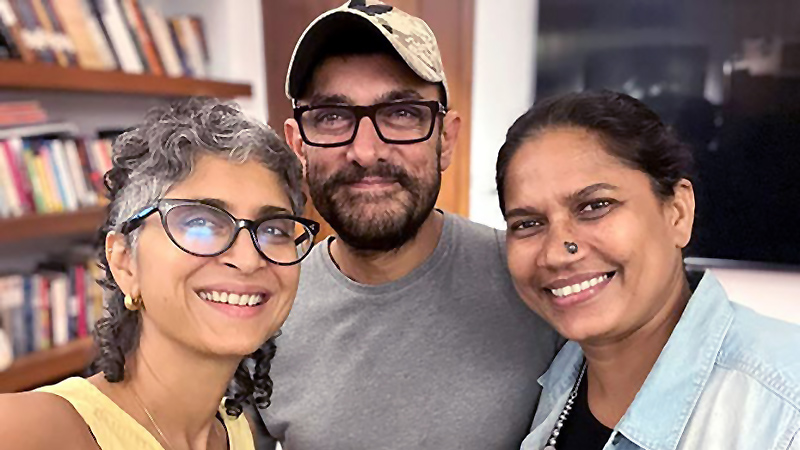
Leave a Reply